“The sea, the great unifier, is man’s only hope. Now, as never before, the old phrase has a literal meaning: we are all in the same boat.”
Jacques Yves Cousteau
Oceans are the life support system of our planet and humankind. The seas flow over nearly three-quarters of the Earth and hold 97% of the planet’s water. Sea plants, like Posidonia, produce 70% of the oxygen we breathe, that’s every second breath we take. The oceans are home to incredible biodiversity and some of the most massive creatures on earth. Producing over 50% of the oxygen in the atmosphere and absorb the most carbon from it. No matter where you live in the world, from the mountains to the desert, oceans directly affect your life and the lives of everyone you know.
From the air that you breathe, the water you drink, the food you eat, to the products that keep you warm, safe, informed, and entertained, all can come from or are transported by the ocean. Around 50% of the world’s population lives within the coastal zone, and ocean-based businesses contribute more than $500 billion to the world’s economy.
Historically, we thought that we could never take too much out of the oceans, or put too much waste into it. However, now, the sheer number of people on our overpopulated planet who use and depend on the sea, and the sometimes unwise practices we adopt, have created many problems such as the overfishing, pollution, acidifying oceans, biodiversity loss, and degradation of marine habitats, among others. We now risk the very ecosystems on which our survival so closely depends.
From the powerful quote above, Cousteau’s words ring truer now more than ever.
Our Ocean’s Challenges
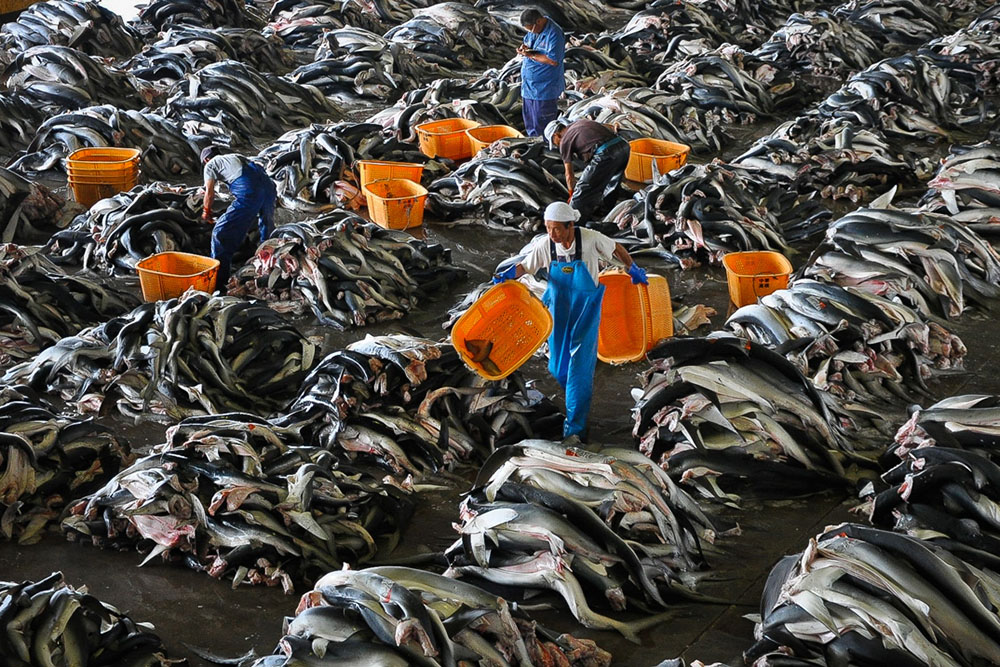
Overfishing
- More than three billion people depend on the oceans for their primary source of protein.
- Ocean fish populations have been cut in half since 1970.
- The United Nations estimates that by 2048, the world’s fish stocks may become commercially extinct.
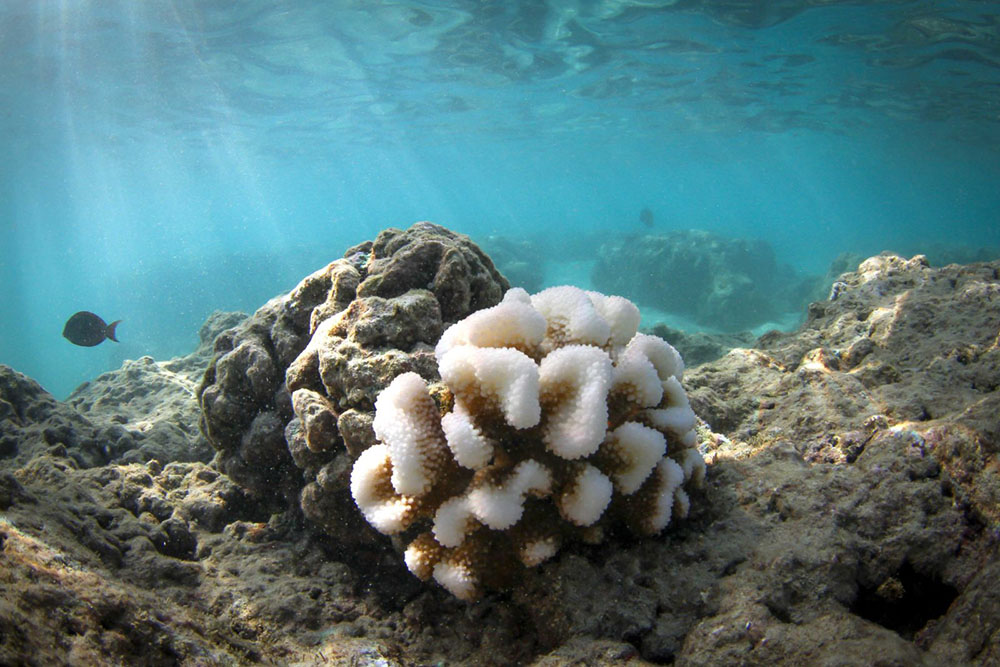
Warming Seas
- Since 1955, over 90% of the excess heat trapped by greenhouse gases in the atmosphere has been stored in the oceans.
- Ocean warming affects fish stocks and crop yields, and leads to more extreme weather events and increased risk from water-borne diseases, affecting humans directly.
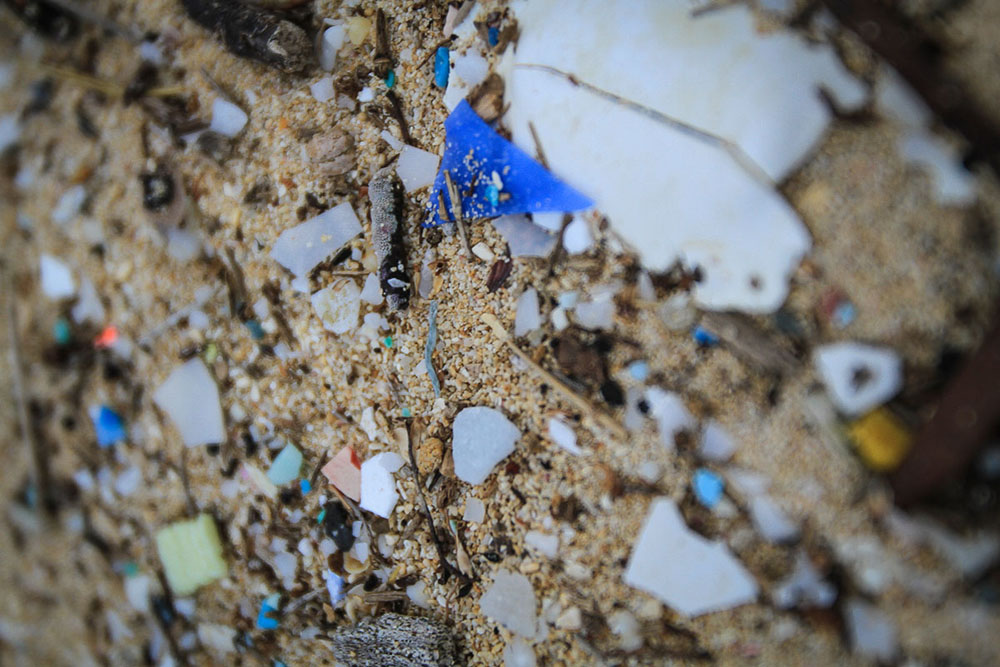
Plastic Pollution
- By 2050, there will be more plastic than fish in the ocean (by weight).
- At least eight million tons of plastic leak into the ocean each year.
- Every piece of plastic ever created still exists in some shape or form.
- 95% of plastic in the ocean comes from lan
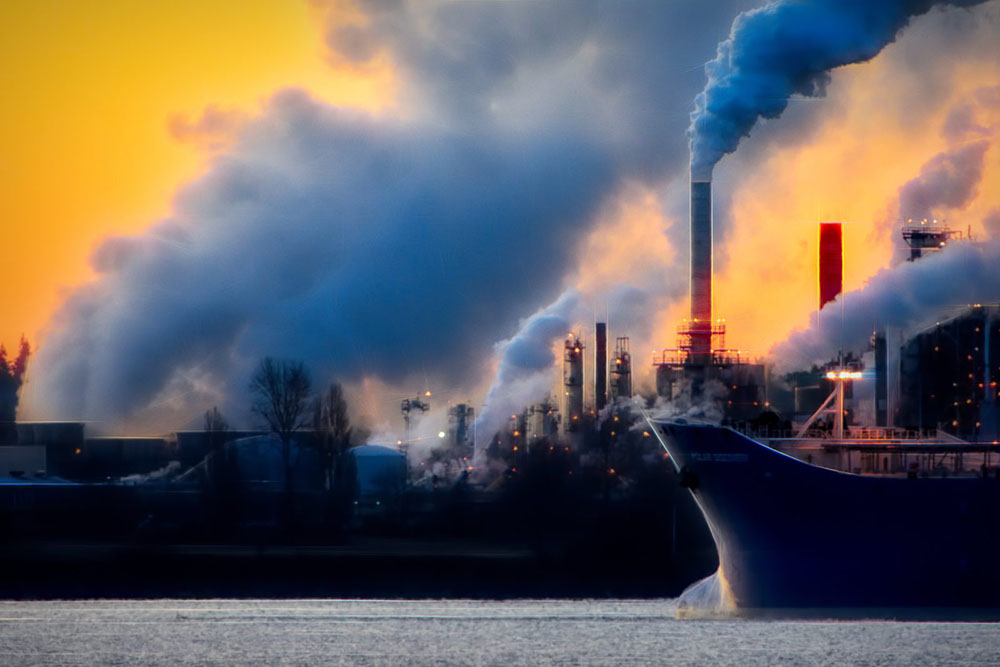
Ocean Acidification
- Since the beginning of the Industrial Revolution, the ocean has absorbed approximately one-third of the CO2 we have produced.
- This has caused an increase of 30% in surface ocean acidity.
- If current CO2 emissions continue at this rate, ocean acidity is expected to increase 100-150% more, relative to the beginning of the Industrial Revolution.
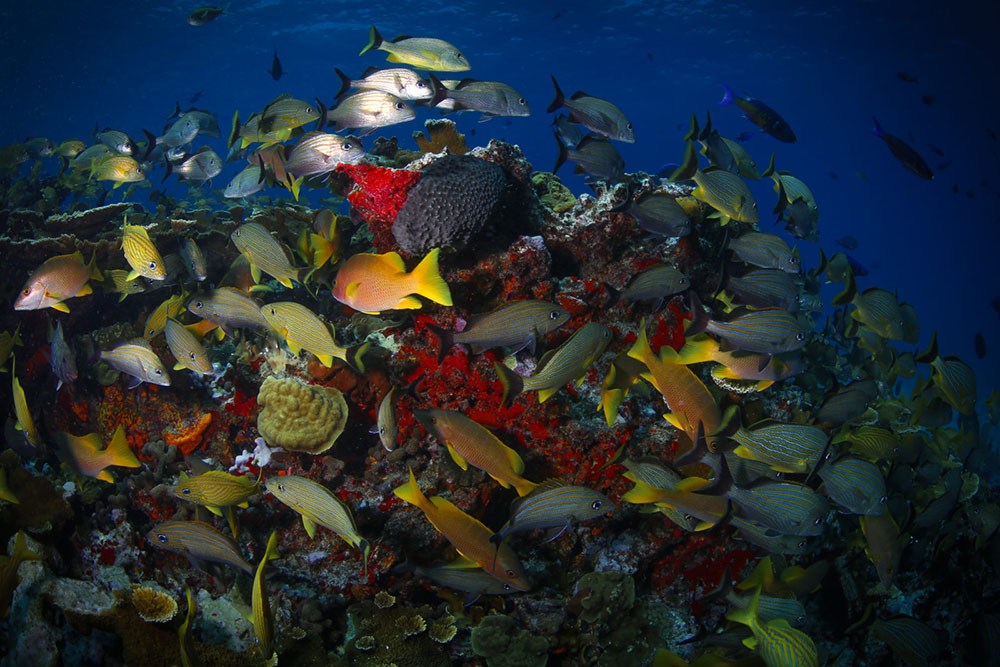
Biodiversity Loss
- By 2100, more than half of the world’s marine species may stand on the brink of extinction.
- 60% of the world’s major marine ecosystems have been degraded or are being used unsustainably.
- There are now close to 500 dead zones covering more than 245,000 km2 (94,600 mi2) globally, that’s equivalent to the surface of the United Kingdom.
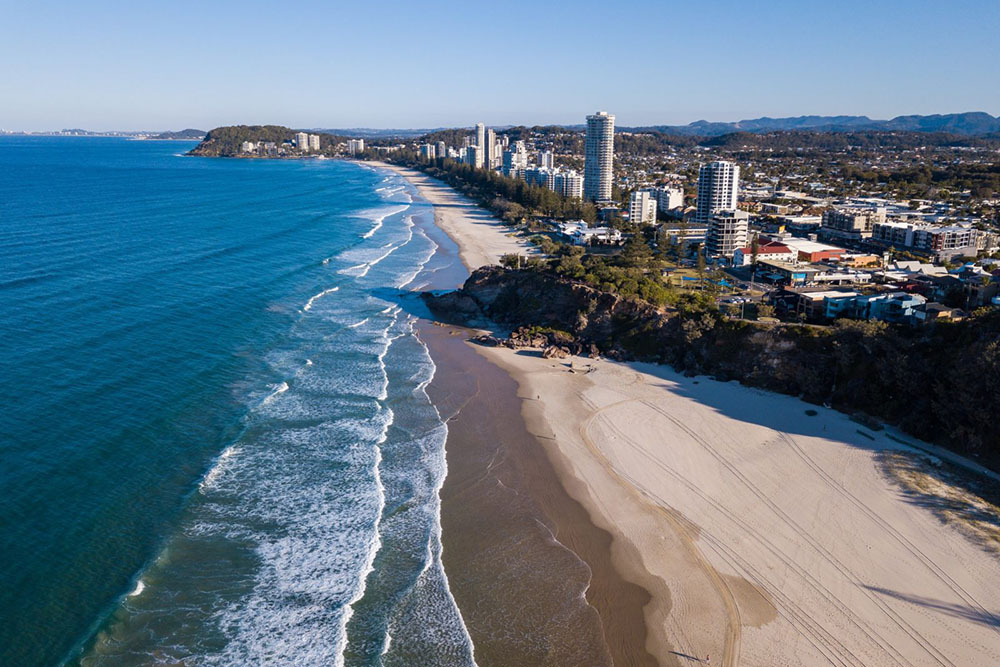
Coastal Development
- Coastal areas are some of the most productive and biologically diverse on the planet.
- 40% of the world’s population lives within 100 km (62 mi) of the coast, taking a significant toll on ecosystems and species.
- Coastal development impacts include pollution, erosion, habitat destruction, and the creation of dead zones.
Take Action
Your Choices Matter

Bring your own!
Say no to single-use plastics and reduce your plastic footprint.

The future is renewable!
Reduce your carbon footprint and energy consumption.

Your vote counts!
Vote for the environment and call your representatives.

Knowledge is power!
Educate yourself, friends and family about what we are doing to our oceans.
